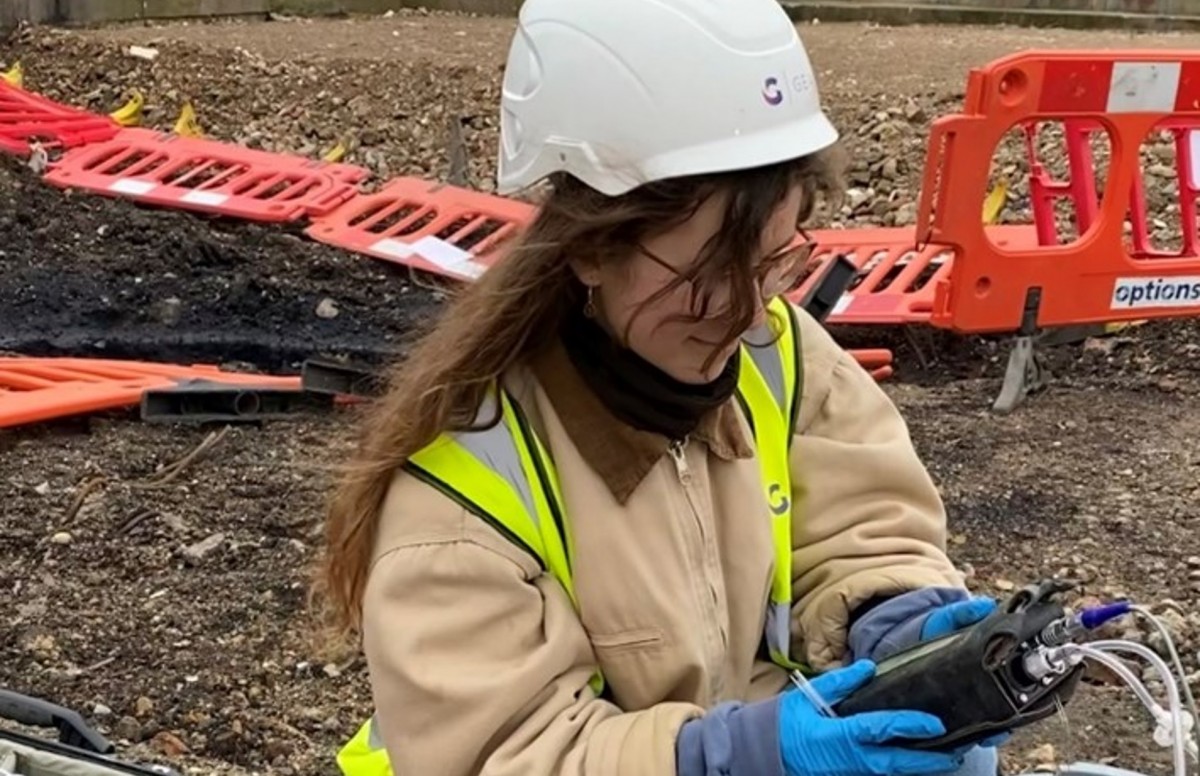An Unbiased View of Geotheta
An Unbiased View of Geotheta
Blog Article
The Of Geotheta
Table of ContentsThe smart Trick of Geotheta That Nobody is DiscussingThe Facts About Geotheta UncoveredThe Main Principles Of Geotheta Top Guidelines Of Geotheta
They team up with civil designers, structural designers, engineers, and other experts to incorporate geotechnical considerations into the total job design and construction procedure. This needs effective synergy, sychronisation, and communication to make certain that the geotechnical elements align with the task goals and meet governing demands.Mining & Materials Design: Concepts of drilling, infiltration rates, and variables influencing the option of drilling technique. Attributes of explosives, shooting systems and blast patterns. Blowing up techniques in surface area and underground functions. Special blasting techniques at excavation borders. Vibration and sound control. Mechanical and constant strategies to fragmentation, including longwall shearing and fullface boring.
Modelling of fragment and fragment dimension distributions; comminution as a transfer function. Comminution modern technology: crushing, grinding, size classification. Integrated evaluation of fragmentation and comminution procedures. Provided by: Mining & Materials Engineering.
The Ultimate Guide To Geotheta
Bachelor's degree programs in civil, geotechnical, geological, and environmental design usually last 4 years and consist of basic education and learning programs in English, social scientific research, and the liberal arts, along with courses in advanced mathematics, structural geology, and fluid mineralogy. (https://www.brownbook.net/business/52934980/geotheta/)
Geotechnical design involves the assessment of the soil and rock conditions at a particular website, and their ramifications for the development of that website. As most structures count on the ground for assistance, it is without shock that a comprehensive understanding of the ground conditions, and the suitability of foundation systems, are crucial to the lasting security and efficiency of the structure or framework.
Being experts in the examination of geological developments and ground practices, geotechnical designers perform scientific investigations and testing to understand the impact these geological formations may have on the design and construction of building, civil and infrastructure jobs. This expertise is important for the style and building of buildings, roads, tunnels, dams, bridges, and supply of water and sewer system.
The geotechnical team at Douglas Partners routinely speak with designers, layout engineers, designers, and building contractors to make referrals on layout and development propositions to make sure that the developed structures are suitably created for the ground problems. The style of footing systems needs to take into consideration the weight of the framework, the ability of the ground to support that weight with each other with motion tolerances and reliable building.
Geotheta - An Overview
This task is greatly streamlined by the usage of our Douglas Map geospatial platform that makes this details easily accessible in a very easy to make use of internet browser user interface. A geotechnical designer will certainly direct the drilling of boreholes and examination pits to collect soil and various other examples, and also analyze surface attributes and ground exposures to develop a geotechnical design of the subsurface problems.
Depending upon the project type and ground problems encountered, lab screening may to name a few points analyze toughness, compressibility, reactivity and/or permeability of soil and rock examples. Hereafter information is collected and collated, the results are utilized for a geotechnical design of the website, which is typically provided as sections across the site.

A geotechnical investigation naturally can just assess the ground conditions at the locations drilled or excavated. Natural variants in dirt and rock problems can take place throughout a website and in between examination areas. It is consequently good practice that the geotechnical designer be retained throughout construction of the project to offer on-site verification that the ground conditions come across follow the assumptions and recommendations supplied in the geotechnical examination report.
All About Geotheta
Geotechnical designers utilize their extensive knowledge of dirt and rock to evaluate threat and fix issues on varied facilities projectsGeotechnical engineering is a specialist branch of civil design which takes a look at the behaviour of planet materials and the application of dirt and rock auto mechanics. Consulting Engineers. As a geotechnical designer, you will analyze the physical, mechanical and chemical residential properties of soil and rock in order to create foundations, preserving structures and earthworks
Geotechnical design is carefully connected to and overlaps with, both engineering geology and ground design - https://www.indiegogo.com/individuals/37984319. It's possible to be experts in geotechnics or help a geotechnical company but be referred to as an engineering geologist or a ground designer. As a geotechnical engineer, you'll require to: develop and maintain partnerships with clients and various other experts included in the website, throughout each projectmaintain security standards on website be mindful of price ramifications when you make recommendationsstudy geological maps and aerial pictures from a variety of resources and from different time periodsexamine construction prepares to see how practical they are based on your understanding of the siteinvestigate dangers or geological risks for the sitesearch for eco sensitive attributes, such as garbage dump beginning to develop valid and interpretive ground modelsplan area investigationsdrill and evaluate Recommended Site examples of bedrock, dirt, groundwater and extra materials oversee other experts on sitesolve technological problems as they emerge, such as unforeseen structures at drill sitesmonitor conditions throughout and after construction to make certain frameworks are stable in the brief and lengthy termadding data gathered on website to your initial researchcreating geotechnical computations, illustrations, and 2 or three-dimensional computer designs analyzing the datamaking recommendations regarding the recommended usage of the site

Report this page